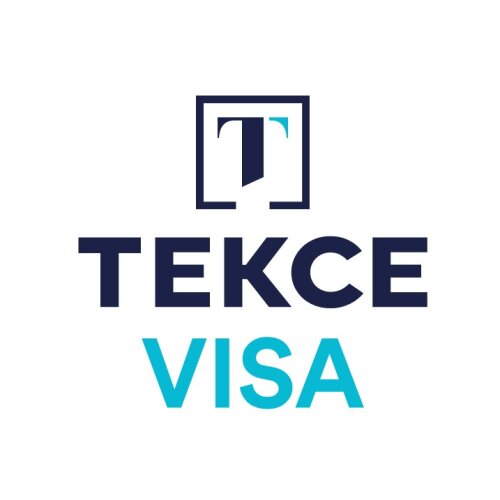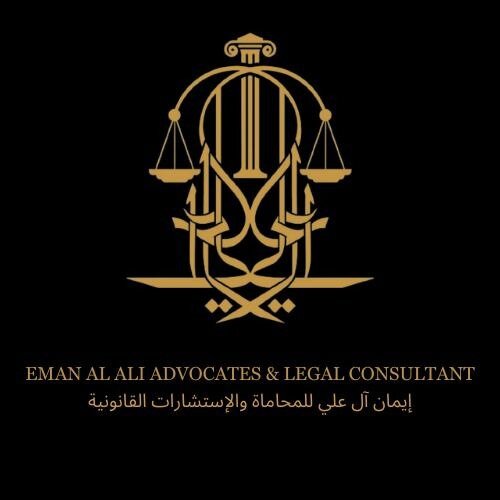Best Lawyers in Dubai
Share your needs with us, get contacted by law firms.
Free. Takes 2 min.
List of the best lawyers in Dubai, United Arab Emirates

Mohamed Eid Al Suwaidi Advocates & Legal Consultants
30 minutes Free ConsultationUnited Arab Emirates Legal Questions answered by Lawyers
Browse our 16 legal questions in United Arab Emirates and read the lawyer answers, or ask your own questions for free.
- Is it legally permissible to file for bankruptcy without notifying creditors and later provide a bankruptcy certificate and repayment promise?
- Is it legally permissible for someone to file for bankruptcy without the knowledge of the creditors and, after obtaining a bankruptcy certificate, provide it to the creditors three years later along with a formal obligation or pledge to repay, signed in front of witnesses? Would that constitute a breach of... Read more →
-
Lawyer answer by Farahat & Co. - Auditing Firm and TAX Consultants
No, this would not be considered lawful in the UAE. Under UAE law, bankruptcy is a transparent, court-supervised process. Creditors must be informed and given the opportunity to participate. Filing for bankruptcy without notifying creditors goes against the purpose of...
Read full answer - Visa
- I have an issue where an employee has a contract with [company removed] but has no visa and so she cannot work. [company removed] is refusing to pay her because they have a subcontract agreement for the employee. However the subcontract agreement is not registered with MOHRE. [company removed] is... Read more →
-
Lawyer answer by Farahat & Co. - Auditing Firm and TAX Consultants
This situation is not lawful under UAE labour law, and the employee should not be left “stuck” without a visa or salary. In the UAE, an employee cannot legally work without a valid residence/work visa issued by the employer. If...
Read full answer - Visa
- I have an issue where an employee has a contract with [company removed] but has no visa and so she cannot work. [Company removed] is refusing to pay her because they have a subcontract agreement for the employee. However the subcontract agreement is not registered with MOHRE. [Company removed] is... Read more →
-
Lawyer answer by Farahat & Co. - Auditing Firm and TAX Consultants
This situation is not lawful under UAE labour law, and the employee should not be left “stuck” without a visa or salary. In the UAE, an employee cannot legally work without a valid residence/work visa issued by the employer. If...
Read full answer
United Arab Emirates Legal Articles
Browse our 22 legal articles in United Arab Emirates written by expert lawyers.
- What is the Penalty for Drug Offenses in the UAE in 2025?
- Table of Contents Introduction: Understanding the UAE's Strict Drug LawsThe Legal Backbone You Should KnowPenalties for Key Offenses Possession or Personal Use Importing, Transporting, or Promoting Drugs Special Rules for Non-Residents at Ports of Entry Deportation, Confiscation, and Other Consequences Related Issues: Testing and Medical Prescriptions First-Time Users, Self-Reporting, and... Read more →
- Handling Dubai Rental Disputes: A 2025 Guide for Landlords and Tenants
- Introduction: Navigating the 2025 Rental MarketUnderstanding Dubai's Regulatory StructureDubai Land Department (DLD)Real Estate Regulatory Agency (RERA)Rental Disputes Center (RDC)The Legal Framework: Laws No. 26 and 33The Tenancy Agreement and Ejari RegistrationMandatory Registration RequirementsAutomatic Renewal ProvisionsThe 2025 Smart Rental Index RevolutionFrom Static Calculator to Dynamic AI SystemStar Rating System and Property... Read more →
- How Can Businesses Comply with AI and Legal Tech Laws in the UAE? (11 Practical Steps)
- AI systems and legal-tech tools are altering how companies function throughout the UAE. Yet, as innovation increases, so does the need for effective AI governance and compliance with local technology and data protection regulations. The UAE’s developing legislative environment compels enterprises to manage risks, safeguard personal data and promote transparency... Read more →
About Hiring a Lawyer in Dubai, United Arab Emirates
Hiring a lawyer in Dubai involves several steps, starting with understanding the legal landscape and knowing where to find legal representation. Dubai boasts a mix of local and international law firms, with lawyers specializing in various fields, such as civil, criminal, real estate, corporate, and labor law, among others. Potential clients should first identify their legal needs, then research and shortlist lawyers or law firms with expertise in those areas. Initial consultations are essential to assess the lawyer’s experience, their approach to your case, and fee structures. It’s important to ensure the lawyer is licensed to practice in Dubai and is familiar with the Emirate’s unique legal system.
Why You May Need a Lawyer
There are numerous situations where hiring a lawyer in Dubai might be necessary. For expatriates and locals alike, navigating legal disputes requires professional guidance, especially in areas like property transactions, business setup, employment issues, family law such as divorce or custody, debt recovery, or criminal defense. Additionally, the rapid growth and development in Dubai have led to increased demand for legal assistance in commercial disputes, mergers and acquisitions, and intellectual property rights. Having a lawyer ensures that your rights are protected and that you comply with all local laws and regulations.
Local Laws Overview
Dubai, as part of the United Arab Emirates, follows a civil law jurisdiction with influences from Islamic Sharia law, especially in matters related to family and personal status. The legal system is complex, with federal laws applying across the UAE and local laws specific to each Emirate. Key areas include labor laws governed by the Ministry of Human Resources and Emiratisation, commercial companies law for business operations, and strict regulations concerning alcohol consumption, dress code, and public behavior. Understanding the nuances of these laws can significantly impact legal outcomes, making it crucial to have knowledgeable legal assistance.
Frequently Asked Questions
How do I find a qualified lawyer in Dubai?
Research online, check recommendations from credible sources, and consult listings on the Dubai Legal Affairs Department website. Consider law firms with strong reputations and specialized expertise relevant to your needs.
What should I consider when choosing a lawyer?
Evaluate the lawyer’s expertise, experience, communication skills, fee structure, and previous client reviews. Ensure they are licensed to practice in Dubai.
How are legal fees structured in Dubai?
Legal fees vary and may include hourly rates, flat fees, or contingency fees depending on the case. It’s important to discuss and understand the fee structure upfront.
Is legal representation mandatory for all court cases?
While not mandatory, legal representation is highly advised to ensure adherence to court procedures and to enhance the likelihood of a favorable outcome.
What if I cannot afford a lawyer?
Seek legal aid services offered by various organizations or check if you qualify for pro bono services. Some firms may offer flexible payment terms for certain cases.
Can expatriates practice law in Dubai?
Yes, but expatriates must be licensed and registered with the relevant authorities. They often work in international law firms or joint ventures with local firms.
Are meetings with lawyers confidential?
Yes, lawyers are bound by confidentiality agreements ensuring that any information shared is kept private.
What should I bring to the initial consultation?
Prepare all related documents, identification, and any relevant correspondence that can provide insights into your legal issue.
How long do legal proceedings typically last?
It varies widely based on the complexity of the case and the court’s schedule. Simple cases may be resolved quickly, while complex cases can take months or even years.
Can I change my lawyer if I am not satisfied?
Yes, clients have the right to change their lawyer if they are dissatisfied with the representation. It’s important to review the initial contract regarding fees and any applicable notice period.
Additional Resources
For further assistance, consider utilizing resources such as the Dubai Legal Affairs Department, the Dubai Courts website, and local bar associations. Additionally, consulting embassies and consulates might provide guidance for expatriates dealing with legal issues.
Next Steps
If you require legal assistance, begin by defining your legal needs and conducting thorough research to find appropriate lawyers or law firms. Schedule consultations to discuss your case and select a lawyer you trust. Ensure all agreements, including fee structures, are documented before proceeding with any legal actions. Remember, taking immediate and informed steps can significantly improve your legal standing and outcomes in Dubai.
Lawzana helps you find the best lawyers and law firms in Dubai through a curated and pre-screened list of qualified legal professionals. Our platform offers rankings and detailed profiles of attorneys and law firms, allowing you to compare based on practice areas, experience, and client feedback.
Each profile includes a description of the firm's areas of practice, client reviews, team members and partners, year of establishment, spoken languages, office locations, contact information, social media presence, and any published articles or resources. Most firms on our platform speak English and are experienced in both local and international legal matters.
Get a quote from top-rated law firms in Dubai, United Arab Emirates — quickly, securely, and without unnecessary hassle.
Disclaimer:
The information provided on this page is for general informational purposes only and does not constitute legal advice. While we strive to ensure the accuracy and relevance of the content, legal information may change over time, and interpretations of the law can vary. You should always consult with a qualified legal professional for advice specific to your situation.
We disclaim all liability for actions taken or not taken based on the content of this page. If you believe any information is incorrect or outdated, please contact us, and we will review and update it where appropriate.
Refine your search by selecting a practice area.



































